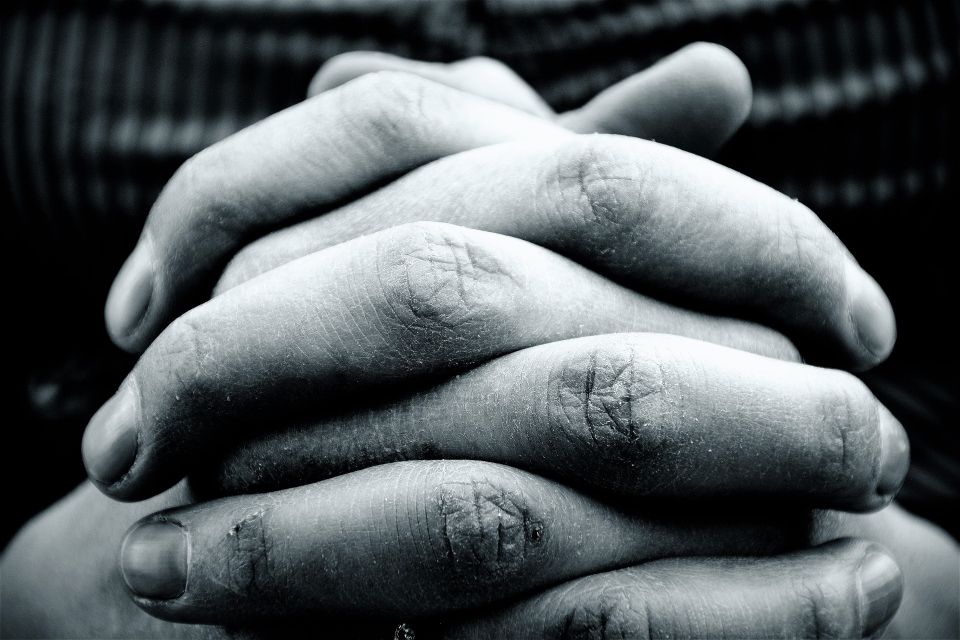In the book of Philippians, it says, “Do not be anxious about anything, but in everything, by prayer and petition, with thanksgiving, present your requests to God” (Phil. 4:6). To an ancient prophet, God tells Jeremiah, “Call on me and come and pray to me, and I will listen to you” (Jer. 29:12). “Call to me and I will answer you, and tell you great and unsearchable things you do not know” (Jer. 33:3). As we celebrate Lent, we are reminded of the words of Jesus, who spent forty days in the wilderness praying. He said, “Therefore I tell you, whatever you ask for in prayer, believe that you have received it, and it will be yours” (Mark 11:24). Of course, prayer is more than making a wish list for God to fulfill. God is not Santa or an ATM machine. God is better than that; calling us into a relationship where our hearts are emptied out only to be filled with more than we ever thought possible. Every major religion includes prayers as part of their practice. So that tells us it’s an important ritual. I look to Jesus as my example. He certainly prayed a lot. There are six references in the gospels that he spoke in prayer, and one instance where he directly gives us the words to pray. We know he prayed in the morning and at night, and before or after something big happened. It wasn’t unlike him to skip off from the crowds to pray alone. In prayer Jesus kept a channel open to God. Like the red phone on the presidents desk that whenever you pick it up there is someone waiting on the other end ready to get you your Diet Coke. But like all conversation, prayer is a dialog not a monologue. We might have a lot to say, but we need to keep our spiritual ears and hearts open to hear what God has to say to move our hearts Godward. People who are new to faith often ask me if there’s a particular way to pray. I tell them it’s no different than having a conversation with someone. Sure there are prayers that walk you through stuff you might be dealing with. I have a stack of books filled with prayers that are offered for birth to praying over the dead to everything in between. My mom’s the type of person who doesn’t like to read prayers. She hates it when everyone prays the same thing. She says she prays from her heart. That’s not to say other religious people don’t do the same, but I like to remind her about the power that is lifted up with 100,000,000 voices singing the same prayer to God’s ears. If you ask me, the only thing that matters is that we begin the conversation. This can happen using a rote prayer from a book, or just by simply saying, “Hey God. What’s up? It’s me. Can we talk?” I like the prayer Nadia Bolz-Weber says every morning when she wakes up, “Lord help me not to be an asshole today. Amen.” It’s not your typical prayer, but it’s a prayer that reaches God’s ears. In Christianity there are different types of prayers. The four most common are confession, contrition, petition, and adoration. Confession is just that, naming your wrongdoing. Contrition is a prayer that asks God for forgiveness. Petition is asking God for a favor. Adoration is simply praising God, or showing your gratitude. You can pray one or all four or something you want. Meister Ekheart is to have said, “If the only prayer you say is ‘Thank you’ then that would suffice.” It doesn’t matter what you say or how you say it as long as the conversation is happening. When I am called to pray over the sick and dying, I use Psalm 51 as my template because it covers all four types of prayers in one beautiful poem. Let’s read it.
0 Comments
Leave a Reply. |
Ian MacdonaldAn ex-copywriter turned punk rock pastor and peacemaker who dedicates his life to making the world a better place for all humanity. "that they all might be one" ~John 17:21“Prius vita quam doctrina.”
~ St. Thomas Aquinas (1225–1274) * “Life is more important than doctrine.”
Archives
June 2024
|
